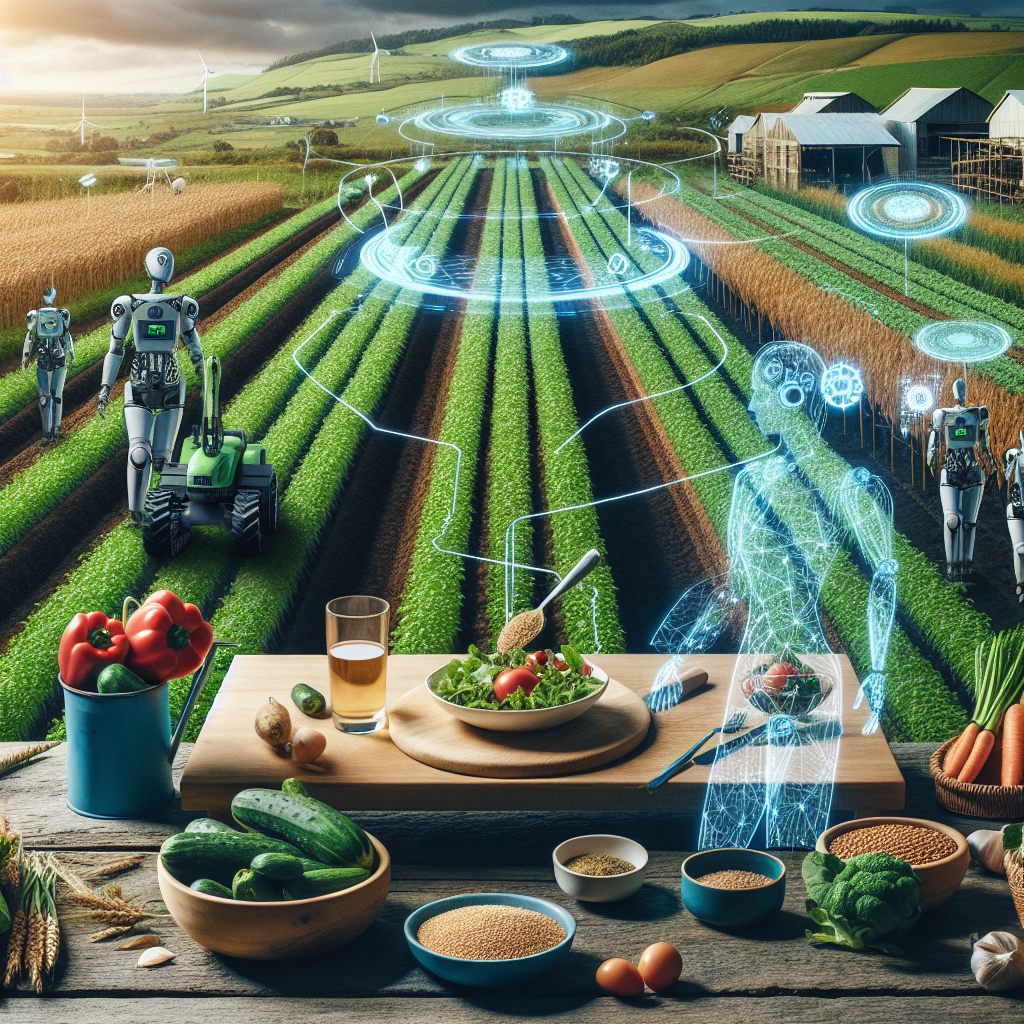From Farm to Table: How AI is Improving Food Production
In recent years, the agricultural industry has seen a significant shift towards the use of technology to improve food production. One of the most prominent technologies that has been making waves in the industry is Artificial Intelligence (AI). AI has the potential to revolutionize the way food is grown, harvested, and distributed, ultimately leading to more efficient and sustainable food production practices. In this article, we will explore how AI is being used in different aspects of food production, from the farm to the table.
AI in Agriculture
AI is being used in agriculture in a variety of ways, from crop monitoring to precision farming. One of the key benefits of AI in agriculture is its ability to analyze large amounts of data quickly and accurately, allowing farmers to make more informed decisions about their crops. For example, AI-powered drones can be used to monitor crop health and detect diseases early on, leading to better crop yields and reduced use of pesticides.
Another way AI is being used in agriculture is through precision farming. This involves using AI algorithms to analyze data from sensors placed throughout a field, such as soil moisture levels, temperature, and crop health. This data can then be used to optimize irrigation schedules, fertilizer application, and other inputs, leading to more efficient use of resources and higher crop yields.
AI in Food Processing
In addition to its use in agriculture, AI is also being used in food processing to improve efficiency and quality. For example, AI-powered robots can be used to sort and package fruits and vegetables quickly and accurately, reducing the need for manual labor and increasing productivity. AI can also be used to optimize production processes, such as determining the optimal cooking time and temperature for a food product, leading to higher quality and consistency.
AI is also being used to improve food safety in processing plants. AI algorithms can analyze data from sensors placed throughout a plant to detect potential contamination issues early on, allowing for quick intervention and preventing foodborne illnesses. This can help to protect consumers and reduce the risk of costly recalls for food manufacturers.
AI in Food Distribution
AI is also being used in food distribution to improve logistics and reduce food waste. AI algorithms can analyze data on factors such as weather patterns, traffic conditions, and consumer demand to optimize delivery routes and schedules, reducing the time and cost of transporting food products. This can help to ensure that food reaches consumers quickly and efficiently, reducing the risk of spoilage and waste.
Another way AI is being used in food distribution is through predictive analytics. AI algorithms can analyze historical data on consumer preferences and buying patterns to predict future demand for food products, allowing retailers to better plan their inventory and reduce the risk of overstocking or understocking. This can help to reduce food waste and increase profitability for retailers.
FAQs
Q: How is AI being used to monitor crop health?
A: AI-powered drones can be used to monitor crop health by analyzing data on factors such as plant color, size, and growth patterns. This data can be used to detect diseases early on and optimize treatment plans for crops.
Q: How is AI being used to improve food safety in processing plants?
A: AI algorithms can analyze data from sensors placed throughout a processing plant to detect potential contamination issues early on. This can help to prevent foodborne illnesses and protect consumers.
Q: How is AI being used to reduce food waste in distribution?
A: AI algorithms can analyze data on factors such as weather patterns, traffic conditions, and consumer demand to optimize delivery routes and schedules. This can help to reduce the time and cost of transporting food products, reducing the risk of spoilage and waste.
In conclusion, AI is playing a crucial role in improving food production from the farm to the table. By harnessing the power of AI, farmers, food processors, and retailers can optimize their processes, reduce waste, and ensure a more sustainable and efficient food supply chain. As technology continues to evolve, we can expect to see even more innovations in the use of AI in food production, leading to a more secure and environmentally friendly food system for future generations.

